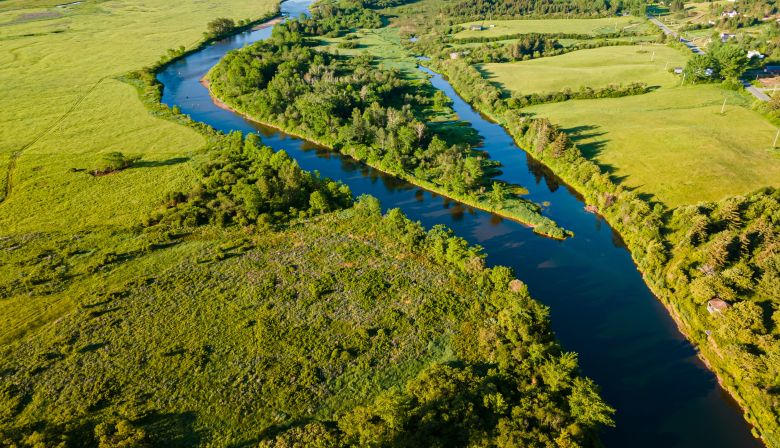
Subscribe & stay up-to-date with ASF

The Margaree and Cheticamp rivers in Cape Breton have been selected along with the Terra Nova River on the island of Newfoundland and the Nepisiguit River in New Brunswick as the first Wild Salmon Watersheds in Canada.
To mark the occasion, three launch events will be held this week across Atlantic Canada:
These events are open to the public, free of charge, and will feature lunch, cake, and refreshments.
Wild Salmon Watersheds is a new freshwater Atlantic salmon conservation program created by ASF. In Cape Breton we have partnered with the Cheticamp River Salmon Association and the Margaree Salmon Association. In New Brunswick we have partnered with Pabineau First Nation and the Nepisiguit Salmon Association and in Newfoundland we have partnered with the Freshwater-Alexander Bays Ecosystem Corporation known as FABEC.
Through Wild Salmon Watersheds, ASF will provide funding and resources to our partners for long-term conservation projects in watersheds where wild Atlantic salmon populations are relatively healthy. ASF’s goal is to establish 30 Wild Salmon Watersheds distributed throughout Eastern Canada by 2050.
“Climate change is a threat to every Atlantic salmon river in North America and if we don’t start preventative conservation work now, the problems affecting rivers in the south will creep further and further north,” said Bill Taylor, president of ASF.
For example, ASF is working with the University of New Brunswick and Memorial University to develop models that can predict how a river will be affected by warming air temperatures. Armed with this information, conservation action can be aimed at the most vulnerable parts of a watershed to help maintain the cold, clean water that salmon and other species need.
“It’s a ground-breaking initiative that will provide additional financial and technical resources to groups like ours,” said René Aucoin, President of the Cheticamp River Salmon Association, a program partner in Nova Scotia. “It’s hard to think about the big picture when we’re chasing year-to-year grants.”
“The Wild Salmon Watersheds program will contribute to the conservation, protection, and enhancement of fish and fish habitat within the Nepisiguit River system. This program will help Pabineau First Nation in our existing salmon enhancement project. As partners working together for a collective goal, I know that Atlantic salmon will benefit, salmon populations will increase, and our children will enjoy Mother nature’s ongoing gift for generations to come.” said Robert Krysko, Director of Special Programs with Pabineau First Nation, a program partner in New Brunswick.
To read our FAQ about the program click here.
To arrange interviews or attend, please contact Kristen Noel
knoel@asf.ca or (902) 499-1801